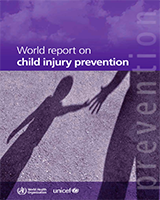BOX 5.4Children Can’t Fly
“Children Can’t Fly” was a programme developed by the New York City Department of Health in the early 1970s, to counter the high rates of death and injury among children following falls from windows. The programme involved persuading the city’s health board to amend the laws, so that all landlords were required to provide window guards in high-rise apartments in which young children lived. This was the first such law of its kind in the United States.
The programme contained three components.
A voluntary reporting system. All falls among children under 15 years had to be reported by hospital emergency rooms and the police. Home visits were made by nurses in the public health system to the household where the fall had occurred.
Education. Parents were counselled on a one-to-one basis on how to prevent falls. A mass media campaign was conducted on radio and television and in the press, informing people of the risks of children falling from windows. This was accompanied by a community education programme, involving the dissemination of printed material.
Equipment. Easily-installable window guards were provided free of charge, where required, to families with young children living in areas of high risk.
As a result of the programme, a significant reduction in the incidence of falls was recorded, particularly in the city’s Bronx district, where the number of reported falls declined by 50%. Many other cities around the world have since followed New York City’s lead. In addition to the lives saved, this intervention has been shown to be cost-effective in terms of savings in hospitalizations, rehabilitation and the costs of maintaining injured or permanently disabled children.
Source: reference 49.
